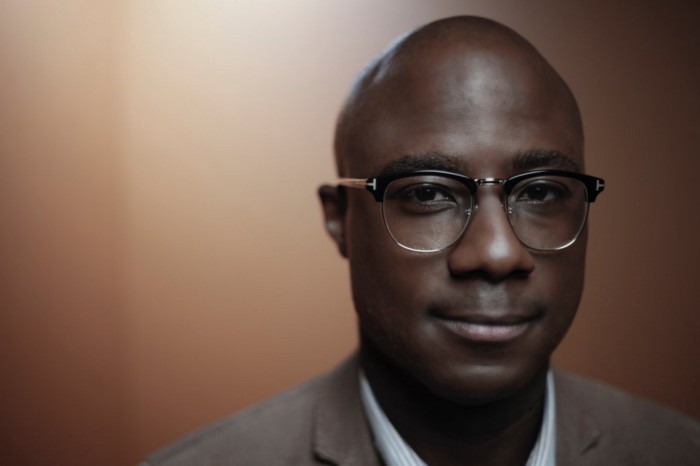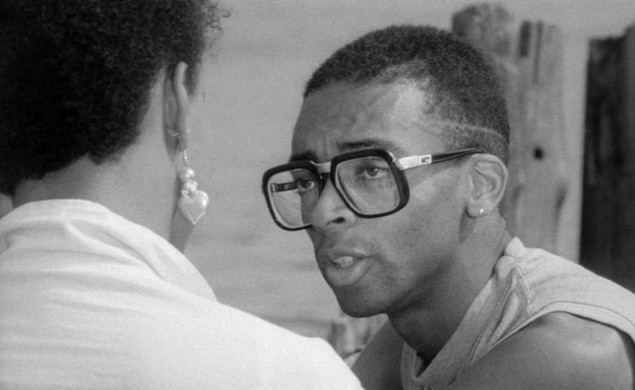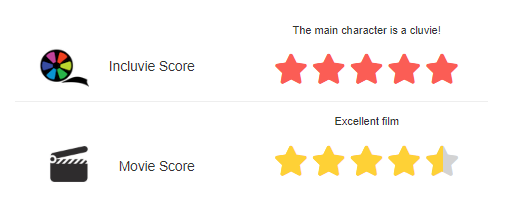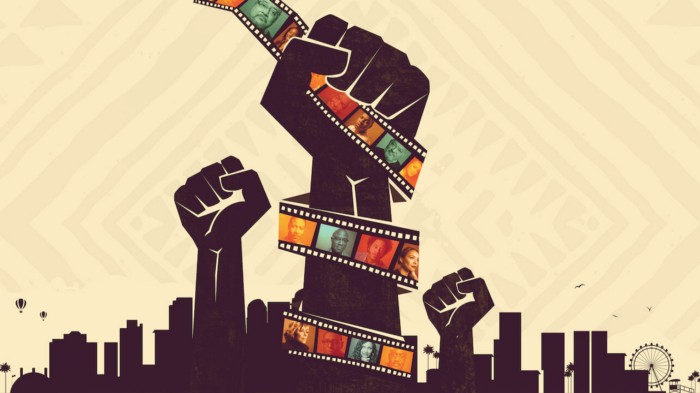The history of Hollywood is as ugly as it is beautiful. You can go back and look at decades of iconic films that have graced the silver screen, from Gone with the Wind (1939) to Citizen Kane (1941) to North by Northwest (1959). Most notably absent from Hollywood history, however, are Black-produced films. When movies did feature Black characters, they were always written by White writers and directed by White directors. The stories were never centered around Black people focusing on what it means to be Black.
Developed by Simon Frederick, They’ve Gotta Have Us (2018) is a limited series on Netflix that explores the rise of Black cinema in Hollywood. From The Birth of a Nation (1915) to Black Panther (2018), and everything in between, They’ve Gotta Have Us offers a comprehensive and compelling look at Black representation in film and the surge of Black-produced cinema.
I’ve mentioned before that some of my favorite classes I took in college were film history courses. I love contextualizing movies and seeing how every film influenced the next. However, I learned virtually nothing about the parallel history of Black cinema in Hollywood. They’ve Gotta Have Us proves to be incredibly enlightening, exploring so many facets of Hollywood history that were previously unknown to me.
The series features interviews with prominent Black filmmakers such as Barry Jenkins (Moonlight, If Beale Street Could Talk), Laurence Fishburne (School Daze, The Matrix), David Oyelowow (Selma, A United Kingdom), Kasi Lemmons (The Silence of the Lambs, Candyman), John Boyega (Attack the Block, Star Wars: The Force Awakens), Gina Prince-Bythewood (The Secret Life of Bees, Beyond the Lights), Carmen Ejogo (Selma, It Comes at Night), and Robert Townsend (Hollywood Shuffle, The Five Heartbeats).

Going into the series, I would have assumed that Black voices had been suppressed in the industry for decades even if I didn’t necessarily know all of the details beforehand; I had no idea the extent to which this happened. The beginning of the series looks at the early years of Hollywood. The Birth of a Nation (1915) defined the motion picture and shaped everything about what movies are and how they are made. Director D.W. Griffith did not believe Black actors were capable of giving the performances he wanted, so he cast White actors in blackface to play horrific caricatures.
Understanding this as the foundation of Hollywood, a culture is created that undermines and diminishes Black voices. For decades, Black actors could play only one of two parts: the slave or the help. They’ve Gotta Have Us chronicles the long tedious battle to have Black producers, Black writers, Black directors, and Black actors telling their own stories. It’s then that the series transitions into the explosion of Black-produced films, spotlighting specifically the work of Spike Lee and Ava DuVernay.
When Spike Lee made movies, he showed things on screen that people had never seen Black people doing before. She’s Gotta Have It (1986) features a polyamorous relationship involving all Black people. School Daze (1988) has a musical number that breaks down the stigmas within the Black community regarding the hair of people with lighter skin and those with darker skin. His films put Black people in positions of power and portrayed them as strong and beautiful. The number of sex scenes involving Black characters were incredibly limited, which Spike Lee changed. He created dynamic characters and empowering moments that sent the message that being Black is beautiful, and nobody should take that away from you.

The series then takes us into the modern day, exploring everything from the historic Oscar win of Moonlight (2016) to the unprecedented Afrofuturism of Black Panther (2018). Black filmmakers today, for the first time in Hollywood, are able to fully execute their vision without inhibition. There is still so much work to be done, but filmmakers like Jordan Peele, Barry Jenkins, Ava DuVernay, and Ryan Coogler now have the resources and the ability to tell the stories they want to tell the way they want to tell them.
Black cinema is only on the rise. As is expressed in They’ve Gotta Have Us, every generation of Black filmmakers opens the door just a little bit more for the next generation. This series does a fantastic job in relaying the full history of Black cinema from its oppressive past to the unlimited potential of its future. There is so much to learn about not just the fight for equality in the industry, but the fight to tell stories; to portray people honestly and accurately, and to have those people tell their stories themselves.
Looking ahead to Hollywood’s future, it seems that Black cinema will only grow in strength and in numbers. Seeing the filmmakers who are coming into prominence today only leaves me excited; not just to see what they make next, but to witness the next generation of Black filmmakers that their movies will inspire.
They’ve Gotta Have Us is currently streaming on Netflix.

Author: Nathanael Molnár, originally published [7/2/2020]

Comments